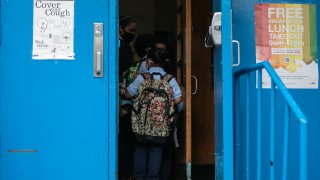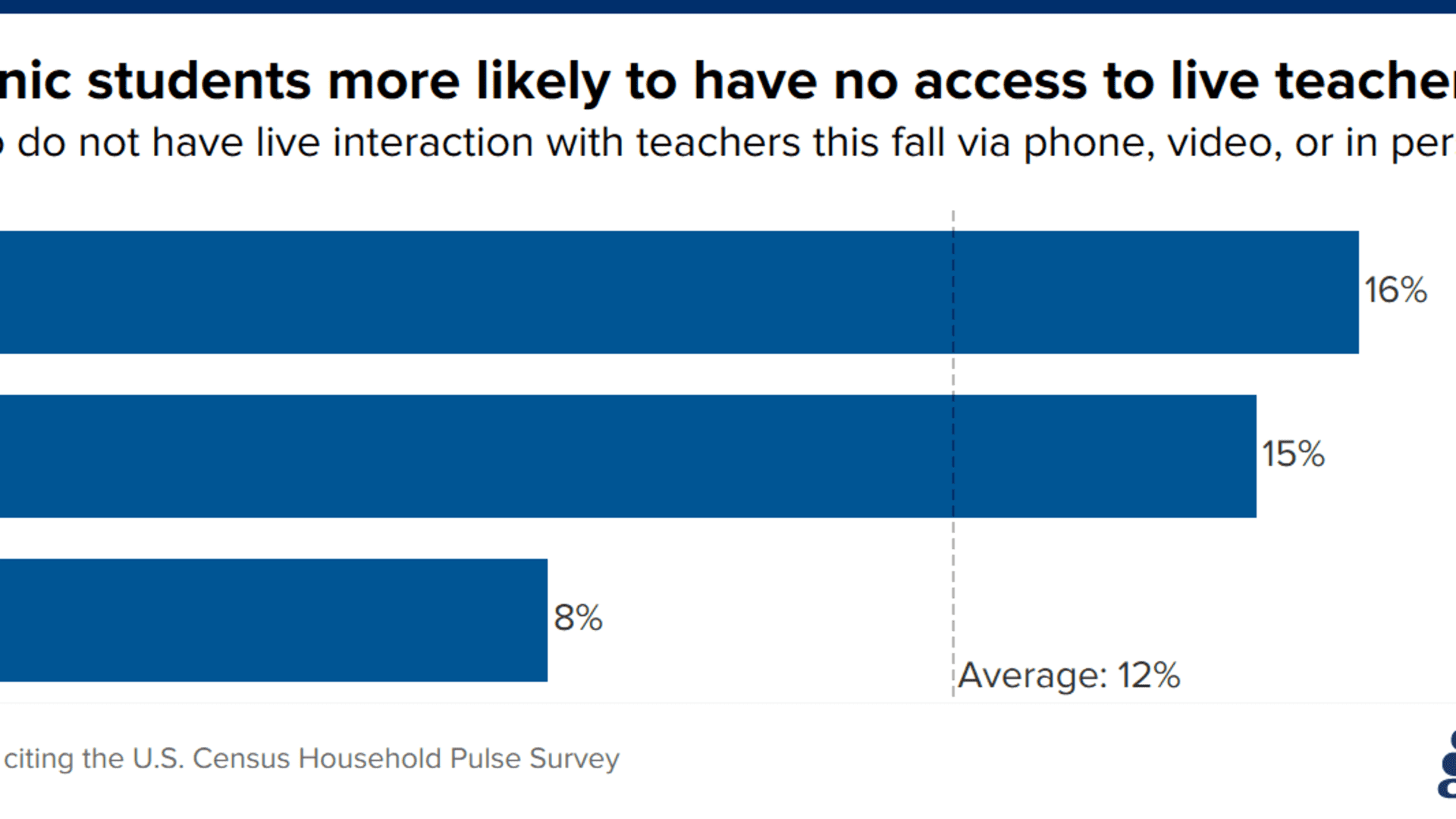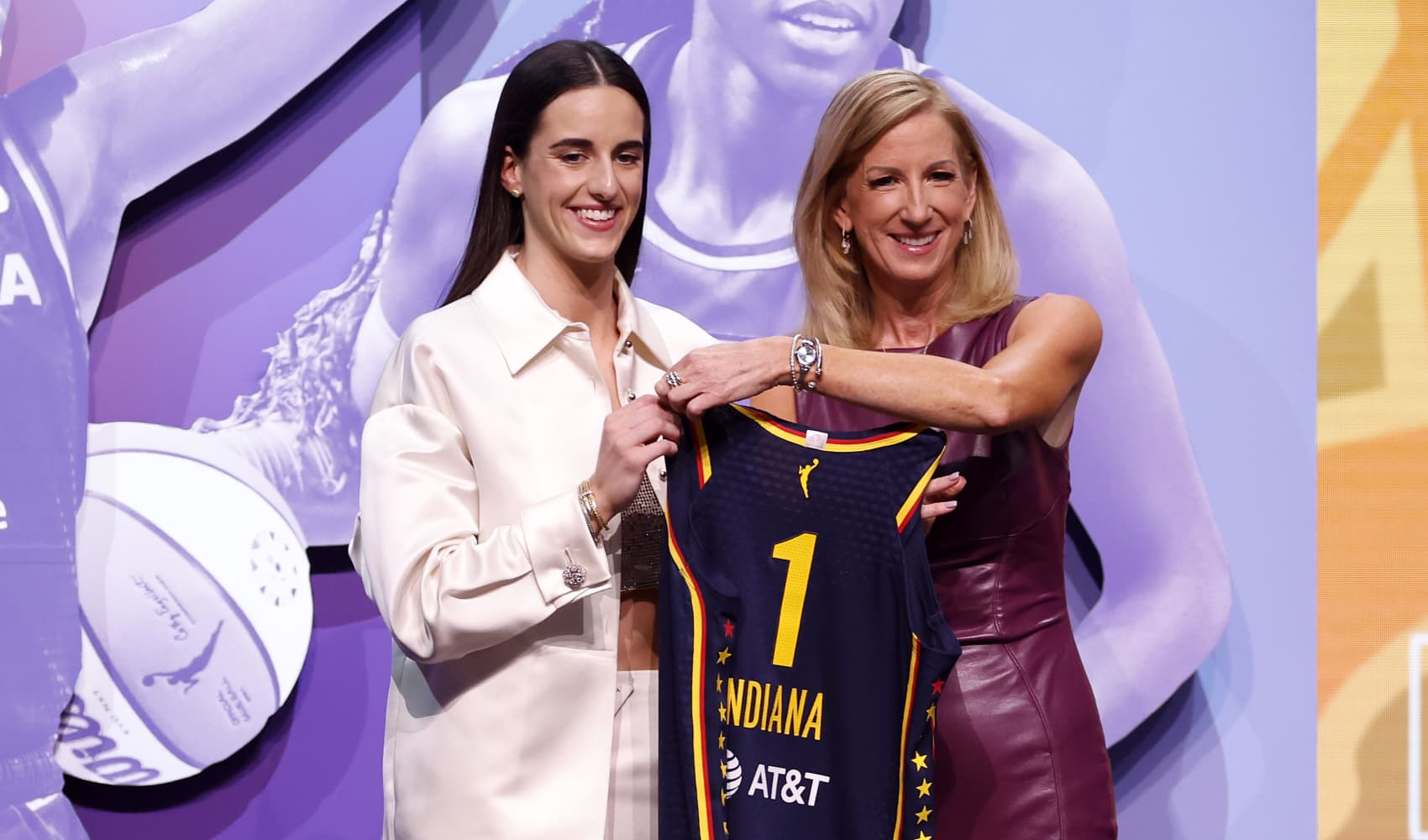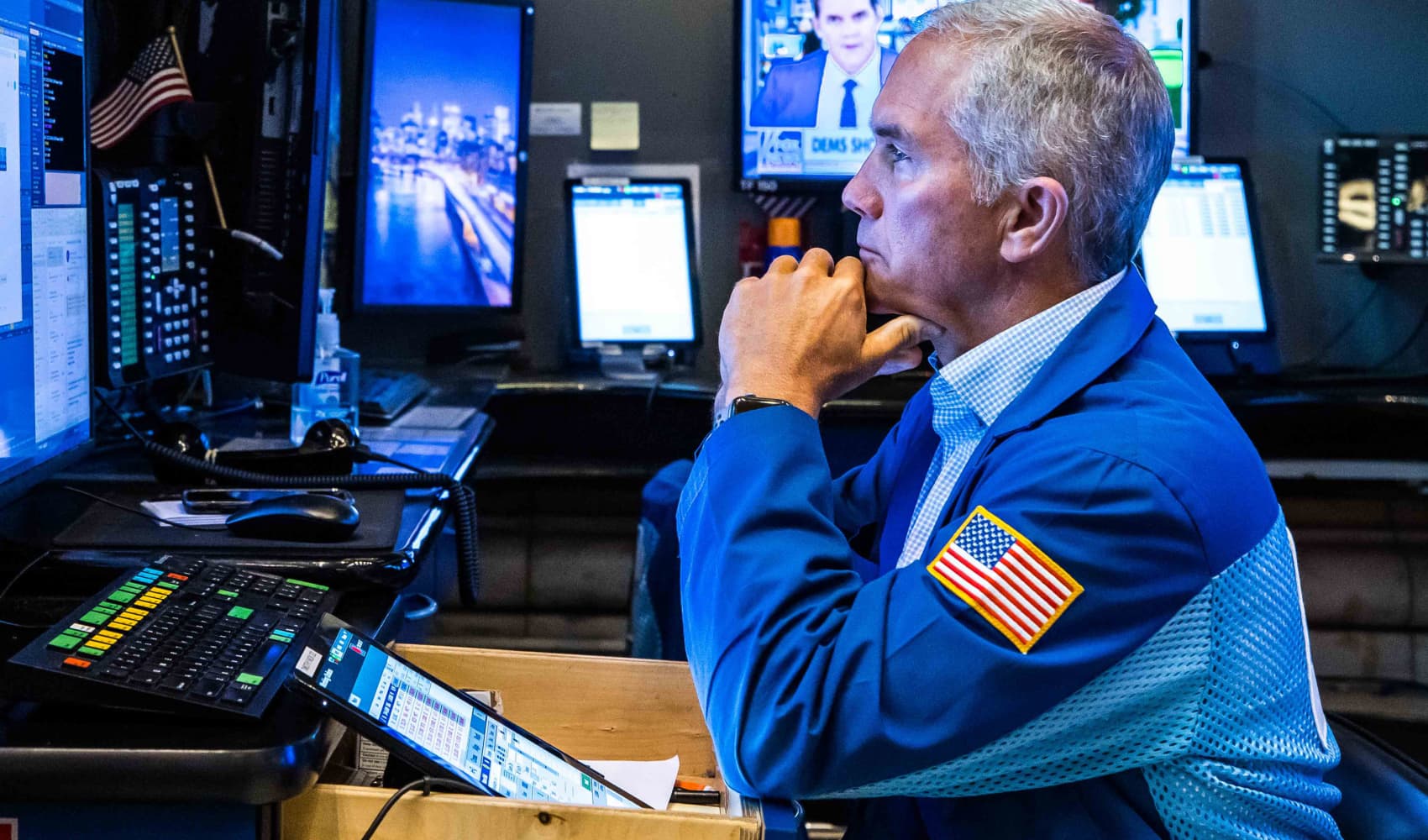
As the coronavirus pandemic continues to disrupt schooling across the country, students are falling behind — and none more than Black and Hispanics, a report by McKinsey & Company found.
That will have long-term implications on their earnings and health, said Silicon Valley-based Emma Dorn, global education practice manager at McKinsey and co-author of the report.
"One of the great travesties of this pandemic is that it has hit the most vulnerable among us the hardest," she said.
"There really is an imperative now to direct those resources to the students who need it most."
More from Invest in You:
For families of color, the pandemic brings an outsized financial hit
Covid financial stress hits Blacks, Hispanics more than Whites, analysis finds
This program is training girls to be leaders
The report, which looks at various scenarios of schooling and how it may impact students, is an update of its previous one in June.
Heading into the school year, students were already behind due to school shutdowns in the spring. Kindergarten through fifth grade students only learned 67% of the math and 87% of the reading that grade-level peers would typically have learned by the fall, the report said, citing the Curriculum Associates i-Ready platform.

Yet for schools whose student bodies were made up of more than 50% of people of color, it dropped to 59% in math and 77% in reading. In comparison, schools with more than 50% White students learned 69% of the math and 90% of the reading that their peers typically have learned.
Money Report
Looking ahead
The good news is that schools have adapted to virtual learning, so conditions have improved significantly since the spring, McKinsey found. Yet, even in the best-case scenario, students will be behind five months on average.
"Learning loss is happening. It is real and it is inequitable," said report co-author Jimmy Sarakatsannis, a partner in McKinsey's Washington D.C. office.
"We are doing better than in the spring but we are not out of the woods yet."
The firm estimates that about 60% of K-12 students started the school year fully remote, while 20% began with a hybrid model of some in-person classes and some remote. The remaining 20% went back to their classrooms full time.

The surge in Covid-19 cases means anything can happen between now and June, 2021. If schooling remains status quo, McKinsey estimates students, on average, can lose nine months of math learning by the end of the school year. However, students of color will be 11 months to 12 months behind, compared to seven to eight months for White students.
The result is an exacerbation of achievement gaps, as well as a hit to earnings power.
The impact is more severe for students of color. McKinsey's June report found that White students would earn $1,348 a year less (a 1.6% reduction) over a 40-year working life, Black students would bring in $2,186 a year less (a 3.3% reduction) and Hispanic students would earn $1,809 less (3%).
What can be done
Significant investments will be needed to make up for the lost learning once the pandemic ends, the McKinsey report said.
One example is so-called acceleration academies, which consist of small groups of eight to 12 students. They would get 50 hours of targeted instruction over two weeks, which would aim to give them back 6 months of learning. At approximately $1,600 per student, it would cost $42 billion to reach 50% of the schoolchildren in the U.S.
There is also high-intensity tutoring, which is 50 minutes of daily tutoring by paraprofessionals for a year. There are two students per teacher, at a cost of $2,500 per student, and they would gain one to two years of learning. The cost: $66 billion to reach half of the students.
"One of the distinguishing drivers of U.S. success is Americans' ability to innovate and mobilize around ambitious goals," the authors wrote.
For instance, the country spent $250 billion to put a man on the moon in 1969, they pointed out.
"A similar investment, and focus on innovation, is needed now in education — with deeper collaboration across public, private, and social sectors."
SIGN UP: Money 101 is an 8-week learning course to financial freedom, delivered weekly to your inbox.
CHECK OUT: Warren Buffett: Don't invest this way or you're 'certain' to get 'worse-than-average results' via Grow with Acorns+CNBC.
Disclosure: NBCUniversal and Comcast Ventures are investors in Acorns.






